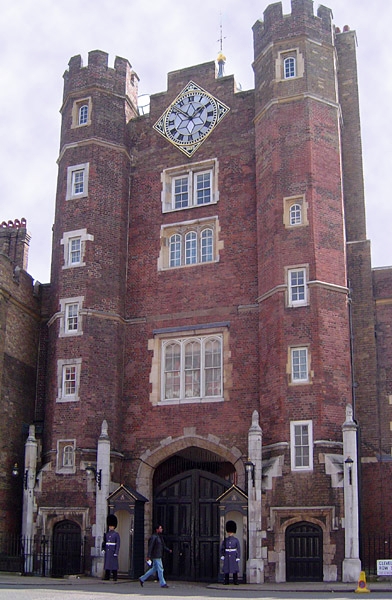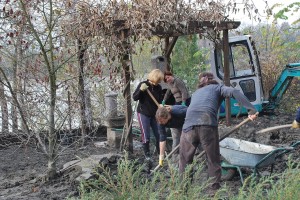The D of E has proven to be very popular in Africa; there are now 20 independent award centres, and 21 national operators across the continent. In South Africa, the programme is known as the President’s Award for Youth Empowerment, and is run with the help of volunteer leaders. Much like the D of E in the UK, the primary goal of the award here is to offer young people the structure and support they need to develop their unique talents, and boost their self-esteem. Those running the President’s Award place the emphasis on personal development, rather than competitiveness, and encourage participants to focus on fulfilling their own aspirations, rather than worrying about competing with others.

In Nigeria – the homeland of Tunde Folawiyo – the D of E is called the Nigerian National Youth Award, and is run by Dr. Jophia Gupar. The Bronze and the Silver awards here are called the Chairman’s and the Governor’s awards, respectively. However, aside from the titles, the programme itself is very similar to the one run in the UK, with four main categories of activities at each level; Adventurous Journey, Physical Recreation, Skills and Services.
It was originally introduced during the seventies by General Yakubu Gowon (the Head of State at that time); however, it wasn’t until 1986 that the programme was officially launched by President Ibrahim Babangida. Eleven years later, Nigeria set up its own independent award centre, with the help of the Federal Ministry of Youth and Sports Development.
Tunde Folawiyo, and others who are familiar with the DofE, understand how beneficial this programme can be for young people; the beauty of it, is that it not only gives its participants the chance to thrive, but also encourages them to help others do the same. Take for example, Obinwanne, a Gold award recipient from Nigeria; as part of his Services activities, he decided to use football to reduce the levels of crime in his neighbourhood.
He realised that one of the main reasons so many teenagers were involved in crime was simply because they had nowhere else to direct their energy; that is, they had no goals, ambitions, or hobbies to keep them occupied. After setting up a football club in his local area, the crime rates began to drop dramatically, resulting in a more peaceful and safe environment for the entire community. Moreover, many of those who joined the club have since decided to pursue careers in this sport.

![travelgeorgia.ru [CC-BY-SA-3.0 (http://creativecommons.org/licenses/by-sa/3.0)], via Wikimedia Commons Tunde Folawiyo](http://upload.wikimedia.org/wikipedia/commons/thumb/0/0b/Lagodekhi_National_Park._Camping_%28Photo_by_A.Muhranoff%29.jpg/512px-Lagodekhi_National_Park._Camping_%28Photo_by_A.Muhranoff%29.jpg) Since its founding in 1956, the Duke of Edinburgh Award has grown exponentially, propelling it into the internationally recognised programme it is today. Recently, the Duke of Edinburgh’s Award was granted a 5 year Camping Exemption Certificate for England and Wales by Natural England, which will in turn allow D of E groups to utilise the land under less invasive restrictions. Under section 269 of the Public Health Act 1936, the following is permitted:
Since its founding in 1956, the Duke of Edinburgh Award has grown exponentially, propelling it into the internationally recognised programme it is today. Recently, the Duke of Edinburgh’s Award was granted a 5 year Camping Exemption Certificate for England and Wales by Natural England, which will in turn allow D of E groups to utilise the land under less invasive restrictions. Under section 269 of the Public Health Act 1936, the following is permitted: efforts to promote goodwill among young people around the globe. Through the continual support of the many proponents of the charity
efforts to promote goodwill among young people around the globe. Through the continual support of the many proponents of the charity ![By StateOfOrigin-coloured-locator.svg: Sémhur Flag_of_Queensland.svg: derivative work: Fry1989 eh? 22:21, 25 October 2011 (UTC) [CC-BY-SA-3.0 (http://creativecommons.org/licenses/by-sa/3.0)], via Wikimedia Commons Tunde Folawiyo](http://upload.wikimedia.org/wikipedia/commons/thumb/4/46/Flag-map_of_Queensland.svg/256px-Flag-map_of_Queensland.svg.png)


![Patrick Mackie [CC-BY-SA-2.0 (http://creativecommons.org/licenses/by-sa/2.0)], via Wikimedia Commons Tunde Folawiyo](http://upload.wikimedia.org/wikipedia/commons/thumb/1/12/Spiral_staircase_-_geograph.org.uk_-_184360.jpg/256px-Spiral_staircase_-_geograph.org.uk_-_184360.jpg) e days. Those who are aware of this programme, like Tunde Folawiyo, might know that the Residential section is particularly demanding, as it involves working on a challenging goal with complete strangers, in an unfamiliar setting.
e days. Those who are aware of this programme, like Tunde Folawiyo, might know that the Residential section is particularly demanding, as it involves working on a challenging goal with complete strangers, in an unfamiliar setting.